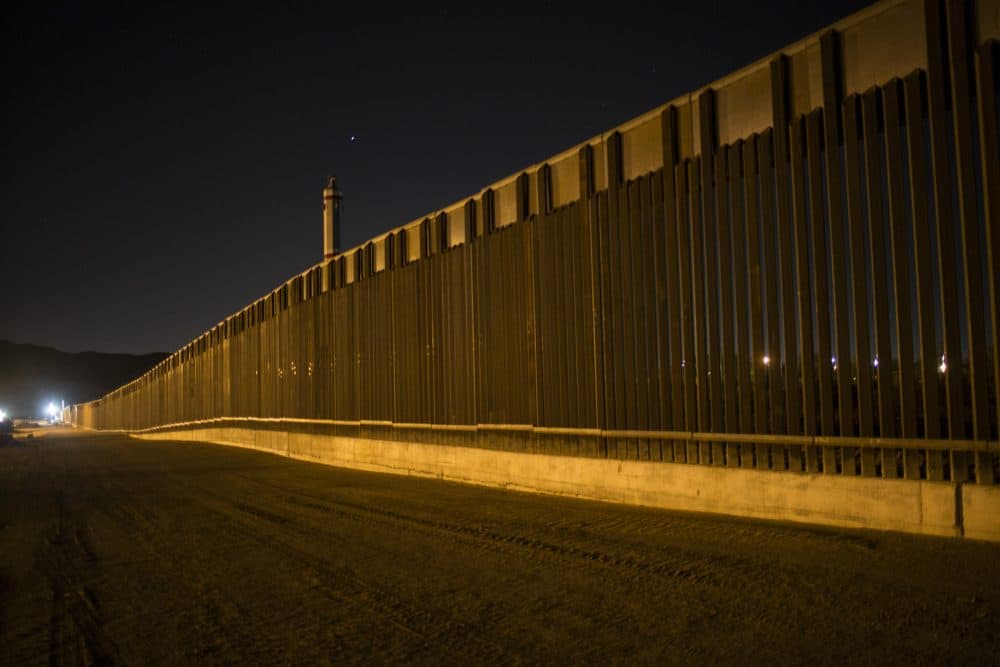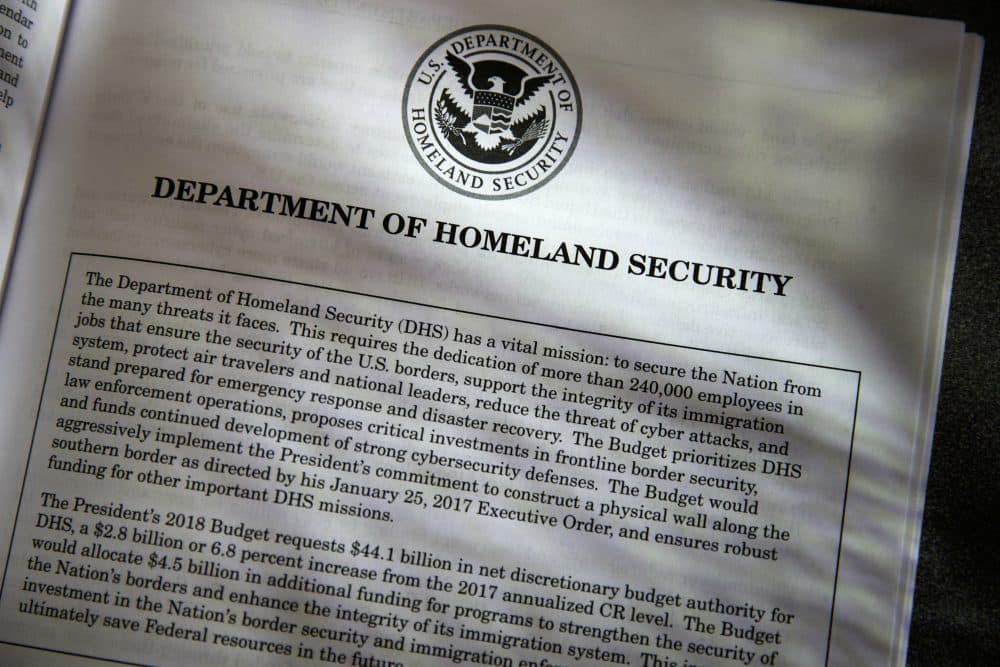Advertisement
Commentary
Trump's Proposed Border Wall: A Bigger Waste Of Money Than You Thought

To my fellow Americans who are Trump supporters: We told you so.
We, the loyal opposition, warned you last year that the Donald was playing you for suckers with his promise of a wall that would keep immigrants entering the U.S. illegally out of the country — on Mexico’s dime. Mexico laughed off the idea and is still laughing. Now, the president is asking Congress for a down payment on the estimated $21 billion of your — our — money to erect his border barrier.
Even if you believe good fences make good neighbors, that’s a lot to drop on a problem with illegal immigration that candidate Trump exaggerated. A new study suggests the wall will be an even bigger waste of taxpayer dollars than even we anti-Trump-ers thought.
...the [immigration] slowdown is already underway, making Trump’s already weak case for a wall positively anemic.
The study, by three University of California, San Diego economists and to be published by the Brookings Institution, predicts that the number of low-skilled Latin American workers in the U.S. illegally — the folks blamed by anti-immigrationists for taking U.S. workers’ jobs — will “slow to a crawl” over the next three decades, even without the wall. The researchers expect no low-skilled immigration from the region at all by 2050.
Let’s grant the uncertainties of such crystal-balling. Still, the paper says the slowdown is already underway, making Trump’s already weak case for a wall positively anemic.
Mexico sends more low-skilled immigrants to the U.S. than any other country does, according to the researchers. In the 1970s and '80s, the percentage of young people from Mexico in the U.S. with a high school diploma or less surged from 12 to 34 percent. For other Latin American nations, the number likewise jumped, from 13 to 24 percent.
The Great Recession first slammed the brakes on this traffic. The Brookings report notes: “Some of the slowdown can be attributed to the collapse in the U.S. housing market, as construction is the second largest sector of employment for undocumented labor and the third largest sector when considering employment among all low-skilled immigrants.”

Meanwhile, a steady growth in Latin American economies since the start of the 21st century meant the premium a low-skilled worker could hope to earn by moving to the United States has shrunk, the report says. In addition, the number of agents patrolling our southern border doubled in the decade ending in 2010, while deportations of non-criminal immigrants in the U.S. illegally surged from 116,000 in 2001 to an average of 226,000 a year in the Bush and Obama years. (President Obama was a robust deporter, despite the oft-repeated canard that he wasn't.)
But the big reason we can expect plummeting immigration is demographics: The end of Latin America’s baby boom, and the drying up of young workers. The study says that native Mexicans in the U.S. in 1980 were typically around the age of 22. Today, they’re 40, and in a generation, they’ll be 70. In the next 15 years, the overall number of native Latin Americans in this country who are over 40 years old will jump 82 percent.
The researchers concede that “many factors could cause the population of low-skilled immigrants in the United States to begin growing again.” A breakout of political or economic unrest in the region could re-open the human faucet, just as organized crime violence in Central America recently propelled people to flee for the States.
On the other hand, Mexico has gone a generation without a financial crisis; its greatest economic challenge may be Trump’s foolhardy campaign threat of tariffs on Mexican goods: “At least in the short to medium run, the U.S. government itself seems in position to determine — whether through its trade or its immigration-enforcement policies -- the potential supply of low-skilled immigrants,” the study reports.
'Why build a wall to stop an immigration surge that has largely already occurred?' the researchers ask. Why, indeed?
Lord knows our immigration policies could use reforms, such as discarding our well-meaning but poorly reasoned priority of reuniting family members when we decide who gets in legally; we’d be wiser to embrace Canada’s policy of privileging high-skilled immigrants instead.
But a wall? Yes, Trump has spent his career building things, but on this one, he seems to have misplaced the cost-benefit analysis. “Why build a wall to stop an immigration surge that has largely already occurred?” the researchers ask. Why, indeed?
